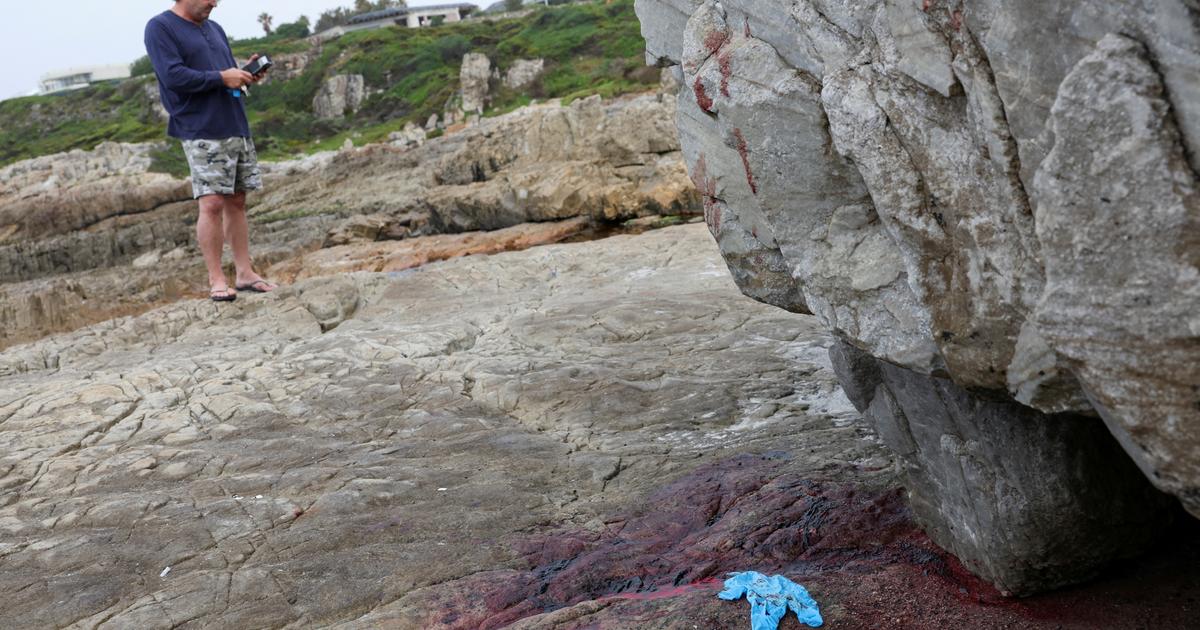Icon: enlarge
Balance sheet juggling in the furniture store:
The Steinhoff Group is still struggling with the aftermath of the scandal
Photo: Mohssen Assanimoghaddam / dpa
The Steinhoff furniture company is trying to put the billions in the balance sheet scandal that rocked the company a few years ago behind them.
But the aftermath can still be felt today.
Steinhoff is still struggling with numerous investors with whom a comprehensive comparison has been sought since last year.
After all, the criminal investigation is now a decisive step further: According to information from manager magazin, the Oldenburg public prosecutor's office has now completed its investigation into the matter, which has been running since 2015.
Result: The public prosecutor's office is bringing charges against three people from the immediate vicinity of the Steinhoff Group and one other person.
The allegation is balance sheet manipulation according to Section 331 of the Commercial Code, which can be punished with a maximum sentence of up to three years imprisonment.
Before the implosion of the Dax group Wirecard, Steinhoff, to which the furniture chain Poco belonged before the scandal, was considered the largest balance sheet fraud in German post-war history.
The prosecutor did not want to comment on the information.
According to information from manager magazin,
Markus Jooste
(60), the ex-CEO of the Steinhoff Group, and
Dirk Schreiber
, ex-CFO of Steinhoff Europe, have been in the sights of the investigators for some time.
In addition, the charges are likely to be directed against another former Steinhoff finance manager and an ex-banker and former corporate management consultant.
The indictment does not come as a surprise, said
Bernd Groß
, lawyer at Feigen Graf and representative of Joostes, manager magazin.
He is confident that he can reject the allegations.
In 2017, manager magazin reported in detail on the questionable accounting practices at Steinhoff and the investigations of the public prosecutor's office that were already ongoing at the time.
As a result, the company's accounting house of cards collapsed, and Steinhoff barely missed bankruptcy.
The share price fell from around five euros in mid-2017 to around 40 cents at the end of the year.
To date, the paper is quoted at only around 10 cents.
Those in charge of the furniture company had inflated sales for years with daring acquisitions and questionable bookings.
In 2016 alone, revenues soared by a third to 13.4 billion euros.
At the same time, losses were shifted back and forth between affiliated companies in the extensive corporate network, so that they no longer appeared in the annual financial statements.
One of the core problems: The company, whose founder and namesake
Bruno Steinhoff
(83) withdrew from the operative business years ago and which is not affected by the allegations of falsification of the balance sheet, grew through acquisitions for which prices were paid far too high.
For example, Steinhoff took over the US bedding retailer Mattress for a whopping 3.4 billion euros - a surcharge of 115 percent on the share price, despite the decline in revenues at the time.
At Poundland, a British chain of stores that sold its range for one pound each and also had to contend with falling sales and profits, Steinhoff offered a surcharge of 43 percent.
In this way it was possible to bring volume into the balance sheet - but not substance.
At that time, goods such as machines and factories accounted for just over a fifth of fixed assets.
And even these real assets were valued lavishly, the group left it at marginal depreciation.
The Steinhoff management also showed great talent in reducing taxes or avoiding them altogether.
Between 2010 and 2015, the group paid an average of 11.7 percent on gross profit, as reported by manager magazin.
The average for the industry was significantly higher than this, at more than 20 percent.
The full extent of the balance sheet juggling at Steinhoff was made public in 2019 by a report by the auditing company PwC: According to this, the questionable bookings from 2009 to 2017 had a volume of around 6.5 billion euros.
Led by a top manager, the group has "structured and carried out transactions for years which, as a result, have significantly exaggerated profitability and the value of assets over a long period of time," said the PwC report.
The managers would have worked with a few colleagues and outsiders to arrange the questionable transactions.
Steinhoff is still struggling with the consequences of the accounting scandal.
The share price shows that investor confidence is a long way from being restored, which is probably due to the fact that the price is still subject to considerable legal risks.
The around 90 lawsuits against Steinhoff added up to more than seven billion euros last year, as reported by manager magazin.
The furniture giant is now negotiating a large-scale settlement with the plaintiffs: the company with German roots, whose headquarters have been in South Africa for some time, is offering a total of around 850 million euros in cash and shares in the African retail subsidiary Pepkor.
Steinhoff CFO
Theodore de Klerk
only expressed optimism at the beginning of this week that the legal disputes could be settled by the end of this year or the beginning of 2022.
"People have lost a lot of money and we can never give them back what they have lost," de Klerk told Bloomberg financial information service.
"It's an ugly situation, but we think comparison is the best solution to something so unfortunate."
In terms of business, the globally branched group now seems at least to some extent to be back on track.
A few days ago, Steinhoff reported a slight decline in sales from 8.1 billion euros to 7.9 billion euros for the past financial year - probably mainly due to Corona.
At the same time, the operating result fell by around 29 percent from 565 million euros to 403 million euros.
With the IPOs of the subsidiaries Pepco (Europe) and Fantastic Furniture (Australia), two larger capital market deals are also pending this year.
And of course the prosecution in Oldenburg.
The regional court there will first have to decide whether to open main proceedings.
However, this only appears to be a formality: In view of the extensive investigations and the already known extent of the accounting scandal, observers consider it highly unlikely that there will be no trial in this case.















